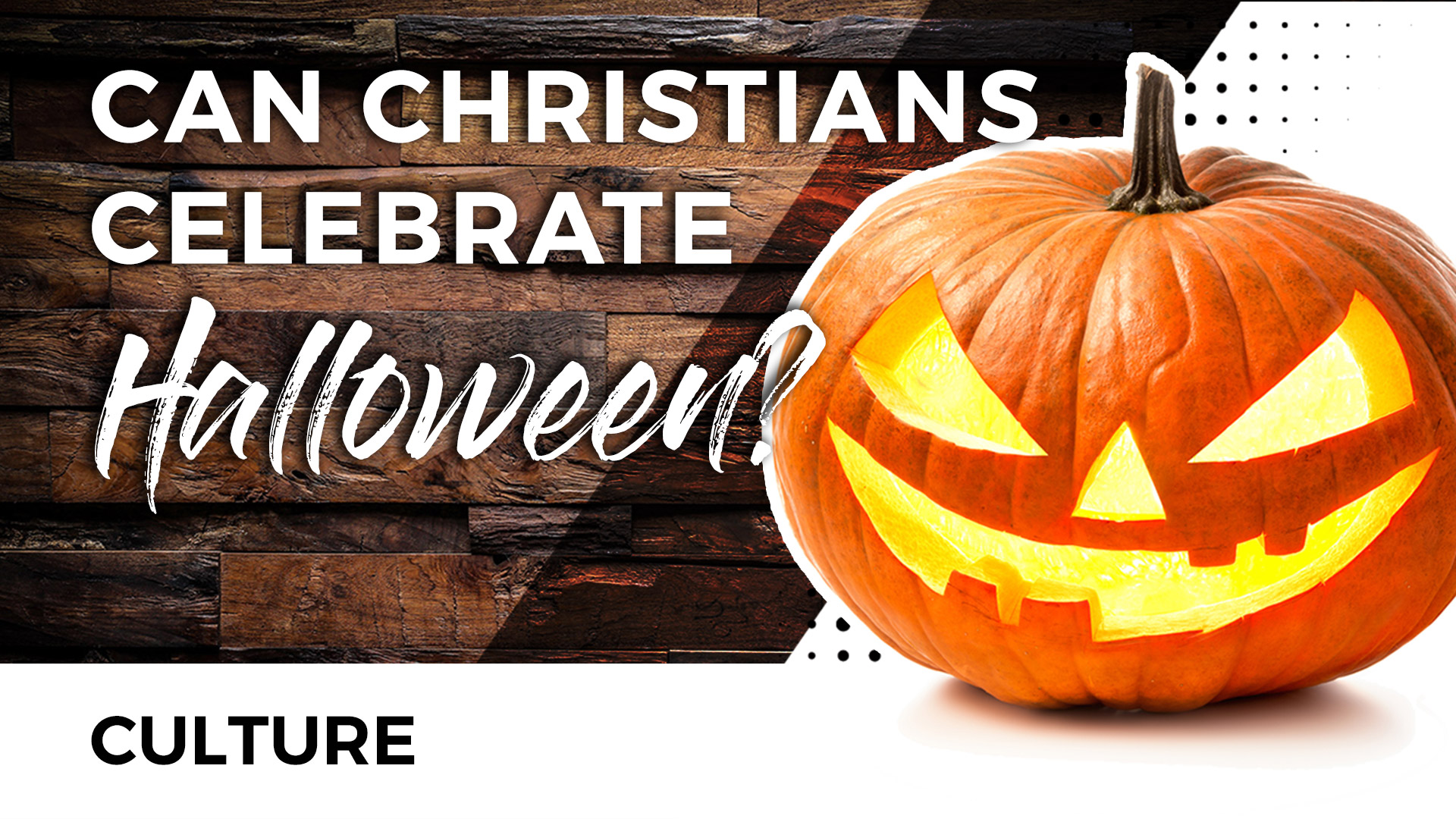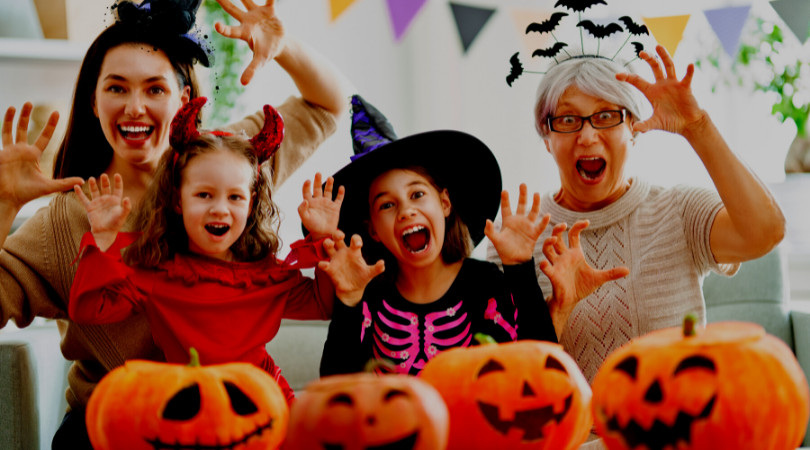Gallery
Photos from events, contest for the best costume, videos from master classes.












Your Reason for Celebrating Halloween (or Not) Matters. Your motive for why you want to celebrate matters. If the intention is to embrace evil or seek attention through a “sexy” costume, then it's not aligned with what God is cheering on. As "Christ Followers,” Christians are called to exemplify love, compassion, respect for others, and Should Christians celebrate Halloween? Yes, Christians can, because the blood of Christ has redeemed Halloween. Traditionally, October 31, which is named Halloween or All Hallows’ Eve, has been considered a pagan holiday. On All Hallows’ Eve, it is said that the souls and spirits of the dead are given the ability to roam the Earth. Stories. Should Christians Celebrate Halloween? It’s not uncommon for people to struggle with whether to celebrate Halloween. Some see it as a dark day full of evil influence while others deem it a harmless time for fun costumes and candy. This answer from the Billy Graham Evangelistic Association may offer some guidance on Halloween and even Many Christians believe that participating in Halloween is a form of involvement in the worthless deeds of evil and darkness, which is forbidden in Scripture: Ephesians 5:7–15. Don’t participate in the things these people do. For once you were full of darkness, but now you have light from the Lord. Halloween’s roots in paganism may raise concerns, but it is the intent of the heart that matters most. As Christians, we must be vigilant not to allow the holiday to glorify or trivialize evil, but rather to celebrate in ways that align with our faith. At the heart of Halloween’s history are themes of death, fear, and the supernatural. October means the arrival of a new season of weather, pumpkin themed foods, fall celebrations, and an often-celebrated day: Halloween. While the celebration provides an outlet for costume creations and candy consumption, for many Christian families the question remains: Should Christians celebrate Halloween? Heal the sick, raise the dead, cleanse those who have leprosy, drive out demons. Freely you have received; freely give” (vv. 7-8). “Do not worry about what to say or how to say it. At that time you will be given what to say, for it will not be you speaking, but the Spirit of your Father speaking through you” (vv. 19b-20). The word Halloween literally means the evening before All Hallows Day (or All Saint’s Day) celebrated on November 1. Halloween is also the shortened name of Allhalloween, All Hallows’ Evening and All Saint’s Eve which is celebrated on October 31. The origin and meaning of Halloween are derived from ancient Celtic harvest festivals, but Christians should take time to inform the consciences of friends and family with biblical truth regarding God, the Bible, sin, Christ, future judgment, and the hope of eternal life in Jesus Christ for the repentant sinner. There are several different ways Christians will engage in Halloween evangelism. Some will adopt a "No Participation" policy. But, while Halloween has long involved symbols of death and demons, the origins of questioning whether Christians should celebrate Halloween are fairly recent. In fact, it is only in the last half Due to its decidedly pagan origins, the answer to the question as to whether Christians should celebrate Halloween is a resounding no. The answer to the question as to whether can Christians participate in Halloween activities without compromising their faith is more difficult. Samhain’s sacrifices morphed into Halloween’s handing out a different kind of offering: candy. Nevertheless, Halloween contains roots in a pagan celebration of death and rebirth. So, should Christians really celebrate Halloween? Christians and Halloween. For many Christian communities, there are three main responses to Halloween. Regardless, the origin of Halloween is certainly in the realm of non-Christian spiritualism. As such, Christians should be careful in their approach to Halloween. Halloween for Christians. Christians haven’t always been sure what to do with this holiday of apparently pagan origins. Are there things about Halloween that should be avoided? Yes. Should, as Christians, we be weary about how we choose to engage in the Holiday? Yes. Like so many other things, we need to consult Romans 14 and align how we choose (or don't) to celebrate Halloween. There's a slippery slope between legalism and Christian freedom; what is suitable This has led many to wonder: should Christians celebrate Halloween at all? Perhaps unsurprisingly, many have answered, “no.” Time magazine reports that Christian participation in the holiday has steadily declined since the 1960s. Skepticism about Halloween amongst Christians is at an all-time high. Should Christians celebrate Halloween? The final decision is still yours. On Halloween, the best we can do as Christians is to celebrate God’s triumph over evil. At the end of the day, with a bit of creativity, we can always turn any occasion into a celebration of our faith in God! Attending a church trunk-or-treat or volunteering to pass out candy and decorate your car can be a God-honoring way to celebrate Halloween. 4. Incorporate a Prayer Walk While Trick-or-Treating. Passing out tracts to children in the neighborhood is a common first choice for Christians on Halloween. Why Christians Absolutely Should Not Celebrate Halloween By Jamie Morgan , Op-Ed Contributor Sunday, October 30, 2016 Dressed as a witch, Maisy Thompson plays with pumpkins in the pumpkin patch ahead of Halloween at Crockford Bridge Farm at Addlestone near Woking, southern Britain October 26, 2015. | (Photo: REUTERS/Luke MacGregor) As Christians you and I are placed in this world to be a light in a world of darkness. There is no lasting benefit to ignore a holiday that exists around us, but it also does harm to celebrate Halloween as it has originated and grown over the centuries. My suggestion? Christians should be teaching their children (age appropriately) that: Halloween, with its dark and demonic themes, seems an unlikely holiday for Christians to celebrate. Yet it has become increasingly popular in America and other countries, marketed as a harmless dress-up night for kids and an excuse to party for adults.
Articles and news, personal stories, interviews with experts.
Photos from events, contest for the best costume, videos from master classes.











